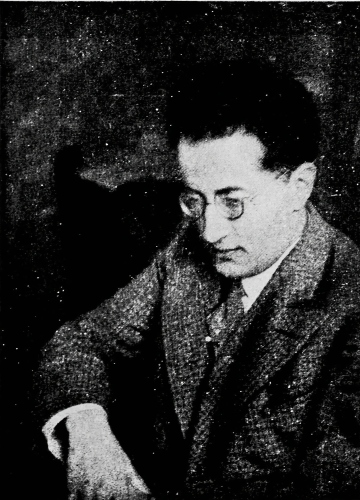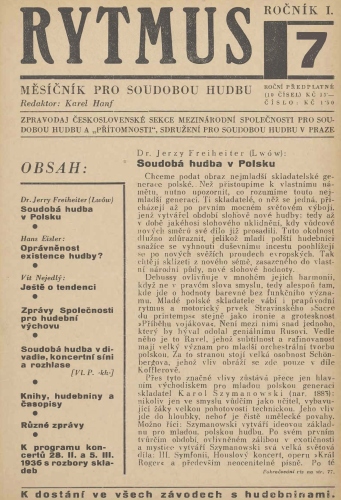In a 1934 issue of Warsaw’s Muzyka Polska, Freiheiter published an extensive review of Koffler’s cantata Die Liebe, Op. 14. He praised the technique and wrote: ‘[W]hat one admires in Koffler is the deep-felt moods, which paint the mystical background of the work’. He described the cantata as one of ‘the most valuable works by a serious composer’ (J. Freiheiter, ‘Józef Koffler, “Love”. A Cantata for Voice, Clarinet, Viola, and Cello’,Muzyka Polska 1 (1934), 74–75). In 1935 Freiheiter reviewed Koffler’s String Trio, Op. 10 in the same journal, and later – his 15 Variations, Op. 9a.
In Warsaw’s Muzyka (1936), Freiheiter printed a survey of Koffler’s life and ouevre (the third such a review text in the Polish press). Since the two Lwów-based musicologists maintained close relations, we can assume that this article was written with Koffler’s knowledge and support. Freiheiter begins by saying that, since Koffler has been pigeonholed as a dodecaphonic composer, ‘the enigmatic nature of this label can be a sufficient deterrent’. He described Koffler’s path as a composer as follows:
Having completed his studies, which gave him a thorough mastery of the craft, Koffler realised that he should look for a new way or principle to replace functional harmony, whose possibilities have been exhausted.

